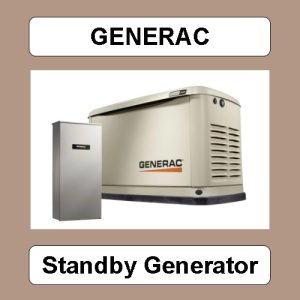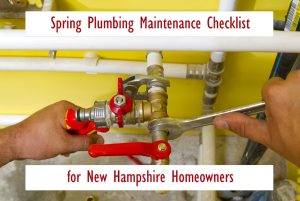Winter can be a challenging time, especially in states like Massachusetts, where extreme cold weather can put a strain on heating systems.
To ensure comfort and efficiency during the winter months, it’s crucial to optimize your boiler for cold-weather resilience.
This article explores the various aspects of heating system optimization, including the use of heat pumps, proper maintenance, and the importance of insulation for energy conservation.
How Can Heat Pumps Improve Energy Efficiency in Cold Climates?
Understanding the Performance of Heat Pumps in Cold Weather
Heat pumps, especially air-source heat pump systems, are known for their energy efficiency, but their performance in cold weather conditions can be a concern for budget-conscious homeowners.
In colder climates like Massachusetts, heat pumps may require auxiliary heat to operate effectively.
It is crucial to recognize that while heat pumps may be less efficient in extremely cold temperatures, they can still make your home more efficient and save on your energy budget. still contribute to overall energy savings.
Importance of Sizing a Heat Pump for Cold Climate
When considering a heat pump for cold climates, ensuring proper sizing is vital.
An appropriately sized heat pump will provide efficient heating while minimizing energy consumption.
A professional assessment of your home’s heating and cooling loads can help determine the right size of heat pump for your specific climate and needs.
Recognizing the Benefits of Air Source Heat Pumps in Winter
Air-source heat pumps can be an excellent option for winter resilience.
These pumps extract heat from the outdoor air and transfer it indoors, providing efficient heating even in very cold conditions.
As a renewable energy source, air-source heat pumps contribute to sustainable energy usage and can significantly reduce reliance on fossil fuels.
What Are the Key Considerations When Optimizing a Boiler for Winter Resilience?
Ensuring Proper Insulation for Improved Boiler Performance
Proper insulation is crucial for optimizing a boiler for winter resilience.
Well-insulated homes can retain heat more effectively, reducing the workload on the boiler and improving overall energy efficiency.
By insulating walls, floors, and attics, homeowners can create a more comfortable and energy-efficient living space.

Upgrading to a Heat Pump System for Enhanced Energy Efficiency
Consider upgrading to a heat pump system to enhance energy efficiency and improve winter resilience.
Heat pumps offer efficient heating and cooling, making them a versatile and sustainable choice for residential heating.
Their ability to provide both heating and cooling eliminates the need for separate HVAC systems, reducing energy usage and costs.

Maintaining and Servicing the Boiler for Optimal Performance in Winter
Regular maintenance of your air conditioner and boiler contributes to a well-functioning and efficient heating system. and servicing are essential for ensuring the optimal performance of your boiler in winter.
This includes cleaning, inspecting, and potentially replacing any worn-out components.
Proper maintenance not only improves efficiency but also extends the lifespan of the boiler, saving homeowners from costly repairs or replacements.
How Can Homeowners Ensure the Resilience of Their Heating System in Extreme Cold?
Recognizing Signs of Inefficiency in the Heating System
Homeowners should be vigilant in recognizing signs of inefficiency in their heating systems, especially during extreme cold weather.
An inefficient system may struggle to provide enough heat, leading to discomfort and higher energy consumption.
Addressing these inefficiencies promptly can help maintain comfort and reduce energy costs.
Utilizing Renewable Energy Sources for a Resilient Heating System
Integrating renewable energy sources into the heating system can significantly enhance its resilience.
Solar energy, for instance, can be harnessed through photovoltaic panels to supplement the heat pump or boiler, reducing reliance on the grid and fossil fuels and making your home more efficient.
This not only improves winter resilience but also contributes to sustainable energy usage.
Implementing Energy Storage Solutions for Improved Winter Resilience
Energy storage solutions, such as battery backup systems, can provide added resilience during the winter.
In the event of power outages or extreme weather conditions, energy storage allows homeowners to maintain essential heating and cooling functions, ensuring comfort and safety even in challenging circumstances.
What Are the Benefits of Heat Pump Water Heaters in Cold Weather?
Understanding the Energy Demand of Water Heaters in Cold Climates
Water heaters face increased energy demand in cold climates as they work harder to provide hot water for various household needs.
Heat pump water heaters offer a more energy-efficient alternative, utilizing ambient air to heat water and reducing overall energy consumption, especially in cold weather.
Optimizing the Performance of Heat Pump Water Heaters for Winter
For optimal performance in winter, it’s essential to size and install heat pump water heaters correctly.
Proper insulation of the water heater and its surroundings can further improve efficiency and reduce energy usage.
As the Energy Vanguard blog writes, homeowners should also consider the capacity of their domestic hot water heater to ensure it can meet the hot water demands during harsh cold weather.
Choosing the Right Water Heater Size for Cold Climate Efficiency
Selecting the right size of water heater is crucial for maintaining efficiency in cold climates.
An undersized water heater may struggle to meet hot water demands, while an oversized unit can lead to unnecessary energy consumption.
Assessing the household’s hot water usage patterns is essential in determining the appropriate size for efficient operation.
Importance of Proper Maintenance for a Resilient Heating and Cooling System
Ensuring Efficient Operation of the Heating System in Extreme Weather
Efficient operation of the well-functioning heating system during extreme weather conditions is vital for maintaining comfort and managing the budget by reducing energy consumption.
Regular checks on the system’s performance, including air filters, thermostat calibration, and ductwork, can help identify and address any issues that may impact efficiency.
Recognizing the Importance of Insulating the Home for Energy Conservation
Insulation plays a key role in making your home more efficient, conserving energy, and maintaining a comfortable indoor environment.
Properly insulated homes can reduce heat loss, minimize energy consumption, and create a more stable and comfortable living environment, particularly during cold snaps and icy conditions.
Utilizing Clean Energy Resources for Improved Winter Resilience
Incorporating clean energy resources, such as solar panels or wind turbines, can bolster a home’s winter resilience.
By reducing reliance on traditional energy sources and minimizing environmental impact, homeowners can contribute to a more sustainable and resilient energy future while lowering energy costs.

Winter resilience: optimizing your boiler for Massachusetts’s cold FAQ
Q: What is winter resilience, and why is it important for my boiler in Massachusetts?
A: Winter resilience refers to the ability of your home and heating system to withstand and efficiently manage the cold temperatures and extreme freezing weather conditions typically encountered in Massachusetts during the winter months. Optimizing your boiler for freezing winter circumstances is crucial to ensuring reliable heating, making your home more efficient, and minimizing energy consumption and costs.
Q: How can I optimize my boiler for winter resilience?
A: You can optimize your boiler for winter resilience by ensuring it is well-maintained, insulated, and functioning efficiently. This includes regular maintenance, proper insulation of the boiler’s pipes, considering energy-efficient upgrades, or alternative heating solutions like installing an air-source heat pump system.
Q: What are some common issues that can affect the winter resilience of my boiler?
A: Common issues that can affect the winter resilience of your boiler include aging or malfunctioning components, inadequate insulation, air leakage, and inefficiencies in the heating system. These issues can result in higher energy use, decreased comfort, and potential breakdowns during extreme cold conditions.
Q: How can I improve the energy efficiency of my home during the winter?
A: Improving the energy efficiency of your home to survive a freezing winter can be achieved through measures such as proper insulation, sealing air leaks, upgrading to energy-efficient heating systems, and optimizing your boiler for winter resilience. These steps can help reduce energy consumption, lower utility bills, and improve overall comfort.
Q: What role does fossil fuel play in winter resilience and heating systems?
A: Fossil fuels, such as natural gas or oil, are commonly used for heating in many homes, including boilers. Understanding the role of fossil fuels in heating systems is important when considering winter resilience and energy efficiency strategies that aim to reduce reliance on non-renewable energy sources.
Q: Are there specific considerations for air conditioning systems in preparation for winter resilience?
A: While the focus of winter resilience is primarily on heating systems, it’s important to ensure that air conditioning systems are properly winterized, as they may share components or infrastructure with the heating system. This includes protecting outdoor units and ensuring any seasonal adjustments are made to the overall HVAC system.
Q: What are the benefits of conducting a home energy assessment for winter resilience?
A: A home energy assessment can provide valuable insights into the efficiency and resilience of your home’s heating and energy systems. It can identify areas for improvement, potential energy savings, and help prioritize upgrades or maintenance tasks to enhance winter resilience and energy efficiency.
Q: What are some alternative heating solutions for winter resilience in Massachusetts?
A: In addition to traditional boilers, alternative heating solutions such as heat pump systems, electric heat, or other energy-efficient technologies can be considered for achieving winter resilience in Massachusetts. These options can offer improved energy efficiency and greater comfort during cold days.
Q: How can I ensure my boiler performs optimally during really cold days?
A: To ensure your boiler performs optimally during extremely cold days, it’s important to have it well-maintained, properly insulated, and to have emergency heat backup systems in place. Regular maintenance and considering the use of alternative heating sources can also contribute to better performance during severe cold weather.
Q: Where can I find resources for optimizing my boiler and home for winter resilience in Massachusetts?
A: Resources for optimizing your boiler and home for winter resilience in Massachusetts can be found through local energy agencies, home energy efficiency programs, the Department of Energy, and reputable sources in building science and energy conservation, such as the Energy Vanguard blog. These resources can provide guidance, incentives, and information on improving your home’s energy efficiency and resilience.




